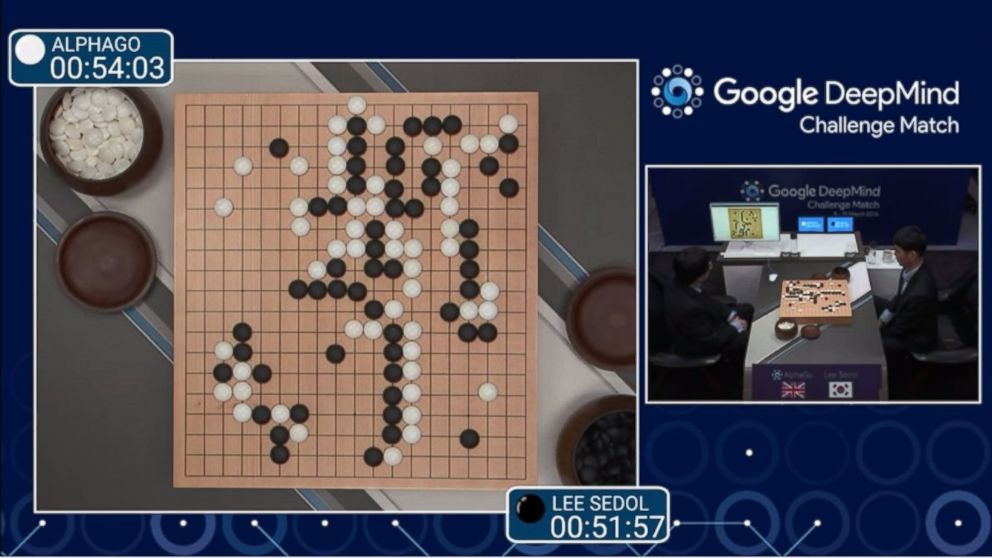Google's AlphaGo Software Beats Human Champion of 'Go' in First Round
Why a win for the machine is so important to the future of AI.

— -- A machine has officially one-upped the world champion of Go, a game with trillions of possible moves and a major touchstone in testing artificial intelligence.
Google's artificially intelligent program, AlphaGo, came out on top early this morning during the first round of a best-of-five tournament live-streamed from South Korea.
The development shows how stunningly smart computers are becoming but also shows the potential artificial intelligence can have in helping to solve real-world problems.
"While games are the perfect platform for developing and testing AI algorithms quickly and efficiently, ultimately we want to apply these techniques to important real-world problems," Demis Hassabis, head of Google's machine learning team that developed the AlphaGo computer program, said in a blog post earlier this year. "Because the methods we’ve used are general-purpose, our hope is that one day they could be extended to help us address some of society’s toughest and most pressing problems, from climate modelling to complex disease analysis."
The team was able to perfect AlphaGo by setting up two neural networks. One network predicts the next move while the other predicts the outcome. The more games it played against human experts and between its neural networks, the smarter the program has become, according to Google.
If Google's AlphaGo computer program pulls off an upset against world champion Lee Sedol in a best-of-five tournament, it will be one of the biggest feats in artificial intelligence since IBM's Deep Blue beat Gary Kasparov at chess in 1997.
Go, a board game that was played in ancient China, pits two players against each other. The players take turns placing black or white stones on a grid, with the object of dominating the board by surrounding the other player's pieces. The stones can't be moved unless they are surrounded or are captured by the other player.
For the purpose of the tournament, the computer chooses the moves while a human assistant makes them on the physical board.
Google said in January its program won 99.8 percent of games against other programs designed to play Go -- giving it a nearly perfect record.
While computers can now compete at the grand master level in chess, teaching a machine to win at Go has presented a unique challenge since the game has trillions of possible moves. It's estimated there are 10 to the power of 700 ways a game of Go could be played. By comparison, chess has around 10 to the power of 60 possibilities, according to Google.
In addition to bragging rights, at stake in the tournament is a $1 million prize.


